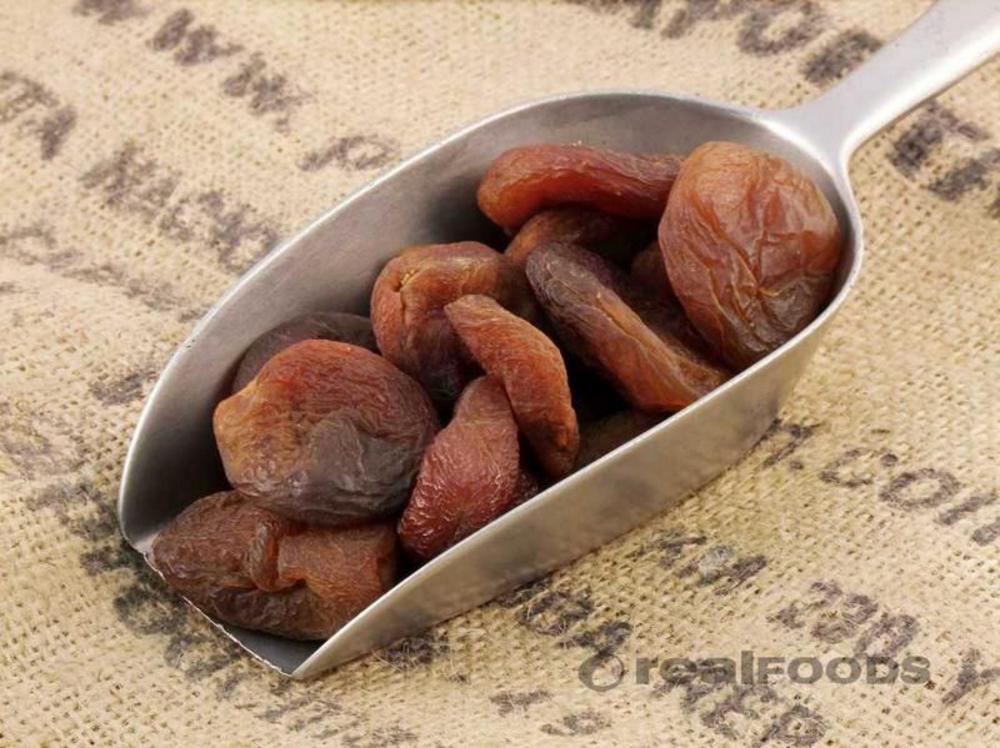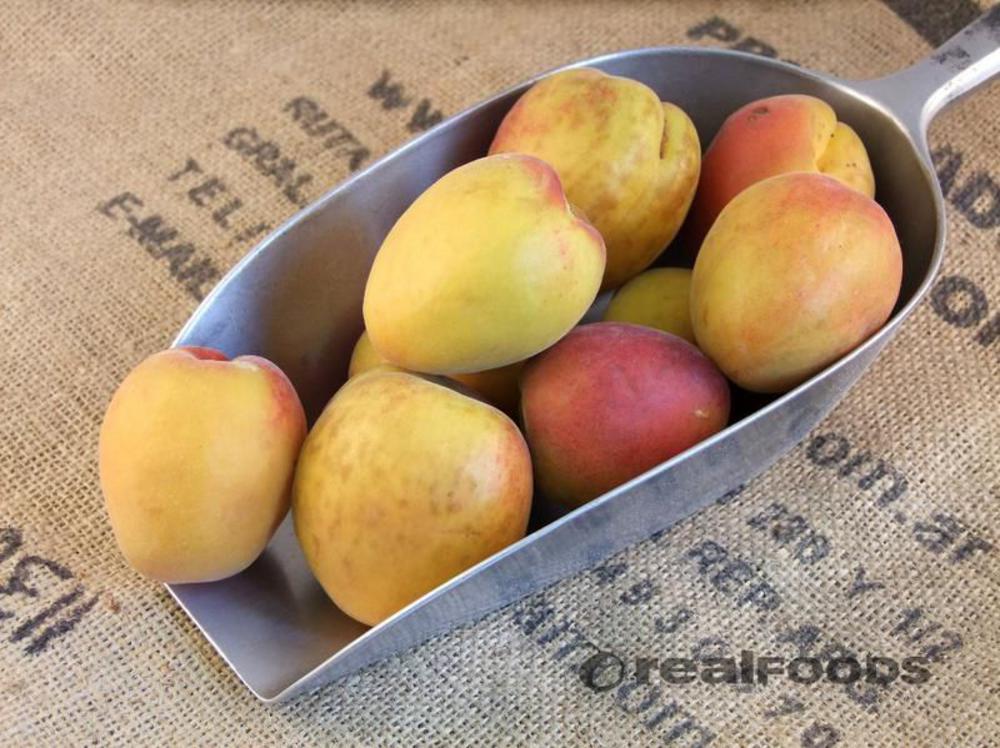
Where am I from?
Originally I hail from Eastern Asia, I've been cultivated by the Chinese for thousands of years, other sources point to Armenia (where an archaeological dig found evidence apricot seeds from the copper age), while yet another theory thinks India is where I started. In Real Foods, most of the apricots are sourced from Turkey and the Mediterranean countries.
What do I look like?
Fresh, apricots range in colour from a pale yellow to quite a bright flushed pink, most often I'm a cheery orange shade. Dried apricots that are treated with sulphur dioxide have a vivid orange hue whilst the organic dried apricots are sun-dried, the oxidisation is a natural preservative. Apricots are at their freshest and ripest in July generally speaking. Hunza apricots look more like a pale walnut than a plump apricot. They grow in wild apricot trees in the Hunza Valley and are left to dry on the trees before harvesting. Japanese umeboshi or pickled plums are actually apricots.
And on the inside?
I have a loose stone surrounded by juicy apricot flesh. The apricot kernel or seed can be so sweet it can be substituted for almonds, often amaretto (the Italian almond liqueur) often has sweet apricot extracts in it. Bitter almond kernels are sometimes used in jam, they are also the subject of some controversial claims as an anti-cancer supplement and can be highly toxic (they contain amygdala a cyanide compound but in stronger doses than apple pips), the British Food Standards Agency recommends eating only a few a day.
What do I do?
 Apricots are great for eye and skin health. They have high levels of beta-carotene and a host of nutrients including vitamins A, C and E, zinc and copper, which studies have shown can reduce the risk of macular degeneration by 25%. The high fibre content of apricots helps maintain healthy bowels. The antioxidants may protect against free radical damage linked to cancer and other diseases. The kernels contain laetrile (amygdala) which is toxic in large doses but may have uses in anti-cancer treatments.
Apricots are great for eye and skin health. They have high levels of beta-carotene and a host of nutrients including vitamins A, C and E, zinc and copper, which studies have shown can reduce the risk of macular degeneration by 25%. The high fibre content of apricots helps maintain healthy bowels. The antioxidants may protect against free radical damage linked to cancer and other diseases. The kernels contain laetrile (amygdala) which is toxic in large doses but may have uses in anti-cancer treatments.
So now you know all about apricots! We'd suggest you try some...
Fresh apricots are a sweet delicious treat, have some fresh for dessert. Or poach them lightly in 1 part honey and 3 parts water, add half a vanilla bean pod, 6 cardamom pods and simmer until tender. Or try this Honey Fruit Salad recipe made with dried apricots and fresh fruits. Dried apricots are also often used in raw food desserts, try this Apricot Date Fudge. All of our apricot recipes can be found in our recipe section.
These Organic Apricots with No Added Sulphur are sourced from Turkey and are perfect for adding to tagines, stews and baking. Roughly 1 in 10 of us is suspected to be sensitive to sulphites (it's more likely if you suffer from asthma or eczema) so seek out unsulphured if you are sensitive or concerned.
For ready to eat apricots, try these no soaking required ones. Perfect for snacking! As are these apricot kernels.
Ume Plums (apricots by another name) are made into a lovely, almost tart paste to use as a seasoning or a spread, find Ume Plum Seasoning here and Umeboshi Sauces here.